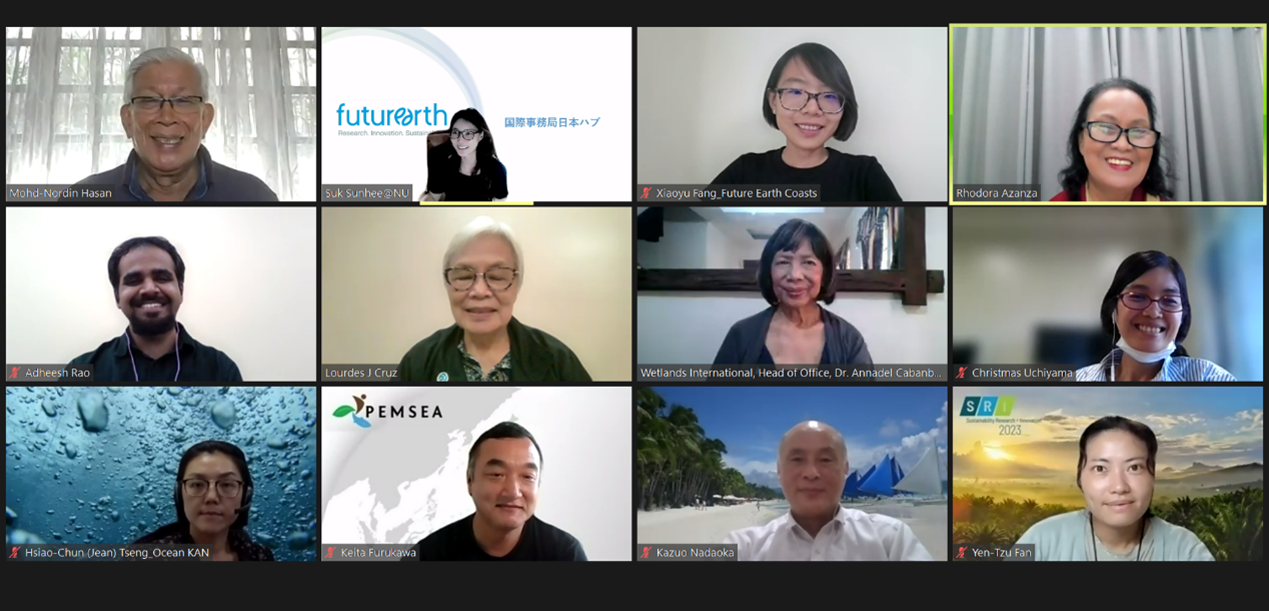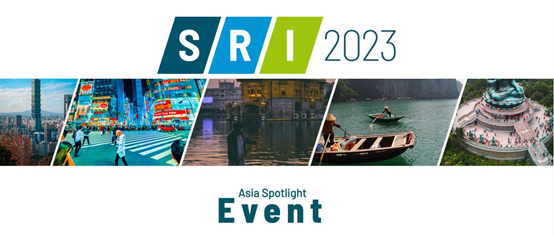The SRI2023 Asia Spotlight event was held virtually as part of the Sustainability Research & Innovation Congress 2023 (SRI2023) from 10-12 July 2023. It provided a platform for sustainability experts – policymakers, early-career researchers, students, civil society, and industry leaders – to highlight and showcase regional sustainability challenges and opportunities. The event featured interactive discussions aimed at promoting more innovative collaborations among different sectors to achieve sustainability in Asia.
FEC co-executive directors Prof. Anja Scheffers and Dr. Xiaoyu Fang and former FEC executive director Dr. Sebastian Ferse were invited as speakers to share their expertise as speakers in different sessions, addressing critical environmental challenges and proposing collaborative approaches for sustainable development.
In the session titled “Developing a ‘Meta Network (Network of Networks)’ Framework for Collaboration among Programs on Oceans, Seas and Coasts under Future Earth, a “network of networks” approach was proposed by SIMSEA (Sustainability Initiative in the Marginal Seas of South and East Asia) to enhance research, innovation, and training efforts by fostering closer interaction and strategic planning among existing programs. The objective of this proposed framework is to facilitate sustainability initiatives and generate a holistic understanding of complex adaptive systems represented by oceans and coasts.
Heads of relevant initiatives and Future Earth programs were invited to share their perspectives, and explore viable sources of funds and resources to sustain the initiative. Dr. Xiaoyu Fang presented ongoing efforts at Future Earth Coasts towards coastal sustainability and shared insights on establishing a collaborative framework for ongoing work related to oceans, marginal seas, and coasts within the Future Earth network. All the panelists agreed on the need to harness the information and knowledge generated by member networks through collaboration and strategic coordination. In the end, the participants reached an agreement that FEC will co-lead the development of the Meta-network framework in collaboration with SIMSEA, further advancing the proposed objectives of the Meta-network and fostering cooperation.

Meanwhile, in another session titled “ENVISION: Reconciling and envisioning future pathways for adaptive governance in small coral reef-island systems,” speakers highlighted the unique ecological and geographical features of island localities which are intricately connected to the local culture, practices, and way of life. Prof. Anja Scheffers drew attention to the urgent need for adaptive governance in small islands facing increasing threats and shared her experience in stakeholder engagement. The sustainability of these islands’ resources and their ability to support human life and livelihoods are threatened by the extent of local and global changes. Understanding the direct and indirect links between communities and resources is crucial. The session also emphasized the risks faced by marine and freshwater resources due to pollution and degradation caused by sediment and nutrient run-off, excessive fertilizer use, and other anthropogenic activities. It is essential to develop multi-resource governance strategies that consider local practices, needs, and culture to bridge the gap between development and conservation.

